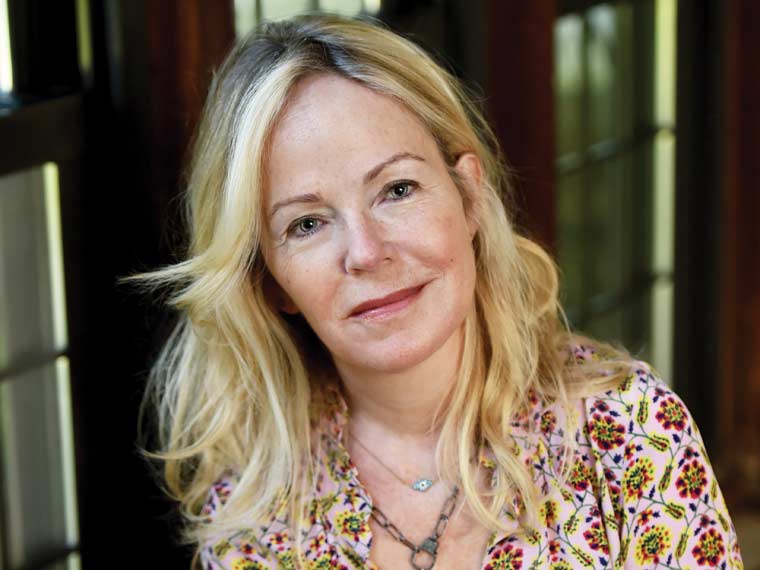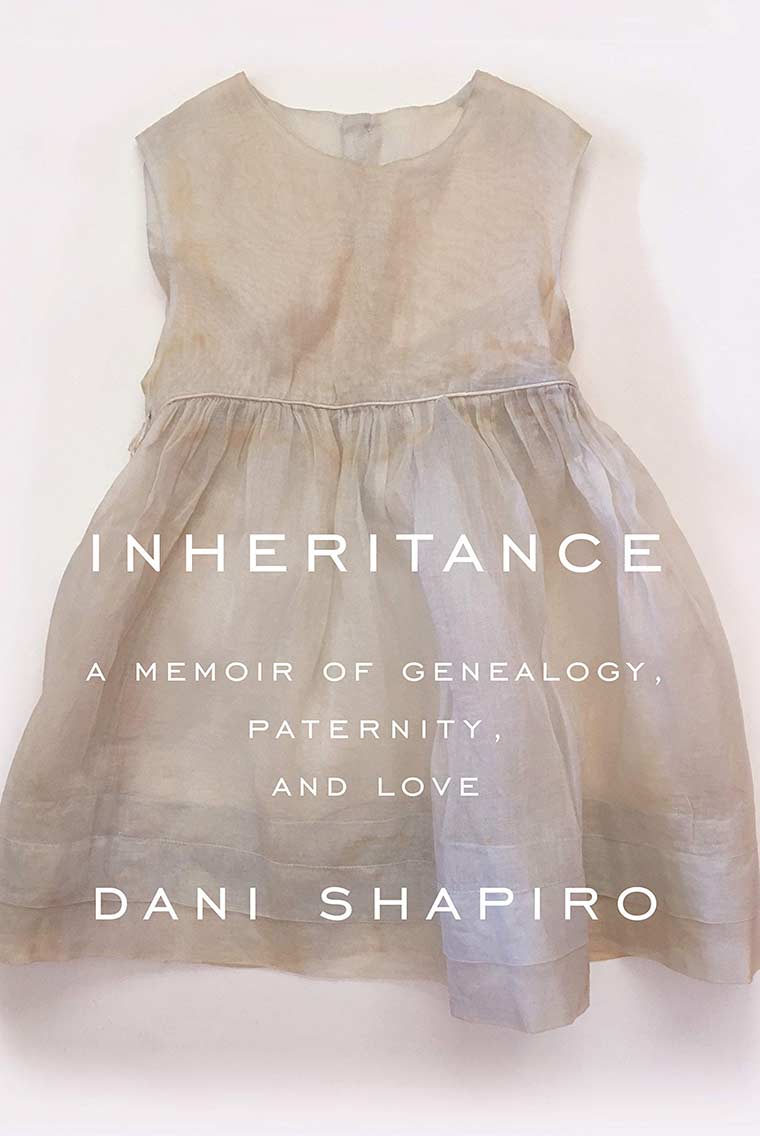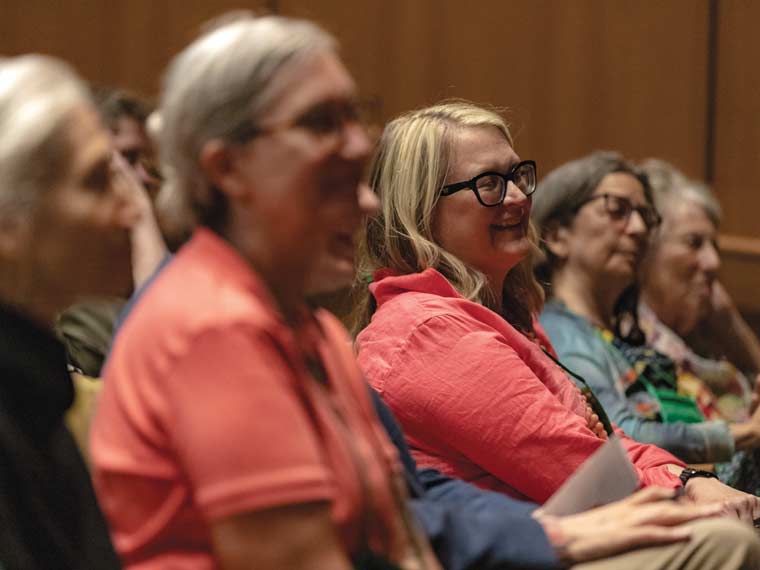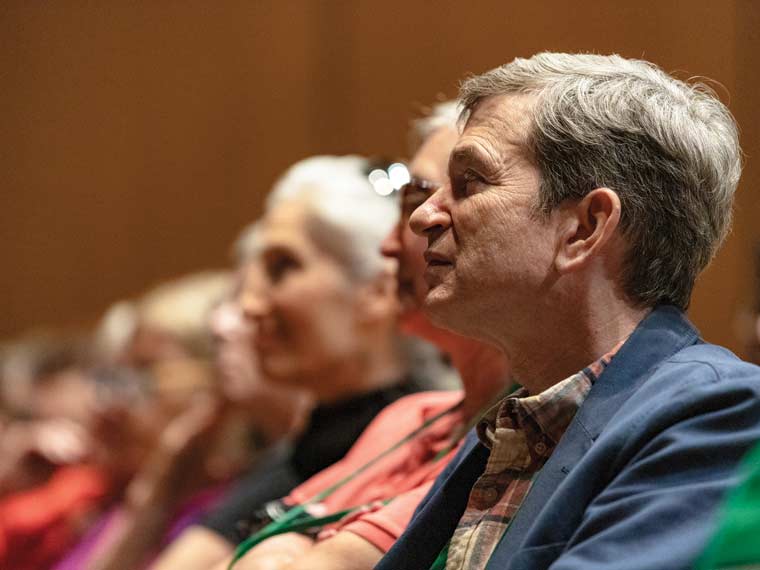A Q&A teaser for those who haven’t yet read the genetic detective story Inheritance by Dani Shapiro ’87, MFA ’89.
Sarah Lawrence President Cristle Collins Judd and best-selling author Dani Shapiro sat down at Reunion 2019 to probe the power of family secrets. Shapiro’s newest memoir recounts how she struggled to regain her sense of self when, at age 54, she discovered that the man she knew as her father was not, in fact, her biological father.

Cristle Collins Judd: What does it mean to walk back into this space, given what you’ve been doing in your writing?
Dani Shapiro: This context is really meaningful. There’s a moment in Inheritance that actually took place in Slonim Living Room. There was a graduate student reading, and it was February 23, 1988, the anniversary of my dad’s death. I didn’t want my mother to be alone, so I brought her to the graduate student meeting. I introduced her to a classmate of mine, and my mother said, “Nice to meet you, Rachel. Where are you from?” Rachel said, “Philadelphia,” and my mother said, “Oh, my daughter was conceived in Philadelphia.” I’m 25 years old, and it’s the first time I have ever heard this. If I hadn’t had that moment, which was just a pure accident—my mother just slipped—I wouldn’t have had the clue that helped me solve the mystery of my identity years later.
Judd: Talk a little bit about secrets. It’s something you’ve obviously thought about.
Shapiro: As a writer, my themes have been families and secrets from my first novel on. It was actually my MFA thesis that was published. I tell my students “theme” is just a fancy literary term for obsession. This was my territory, and I didn’t know why. I also didn’t know why I moved from fiction to memoir. I kept being drawn to dig into my own history and experience. Then three years ago, I found out I had been the secret in my family. I was recently described in Bookforum as a public contemplative. I really loved that.
Judd: We’ve seen an extraordinary change with social media and all of its manifestations. How do you think about that?
Shapiro: I find social media very complex, because there’s a burnishment that happens for all of us. Yet there’s a kind of truthfulness that sort of devolves into confession. Memoir is not confession. In fact, it’s quite the opposite. To write good memoir you actually have to transcend your life and be able to see it as a story. Writing a memoir is actually curating. It’s a consummate act of control.
Excerpted and Edited by Renée Olson
Photos by Dana Maxson


